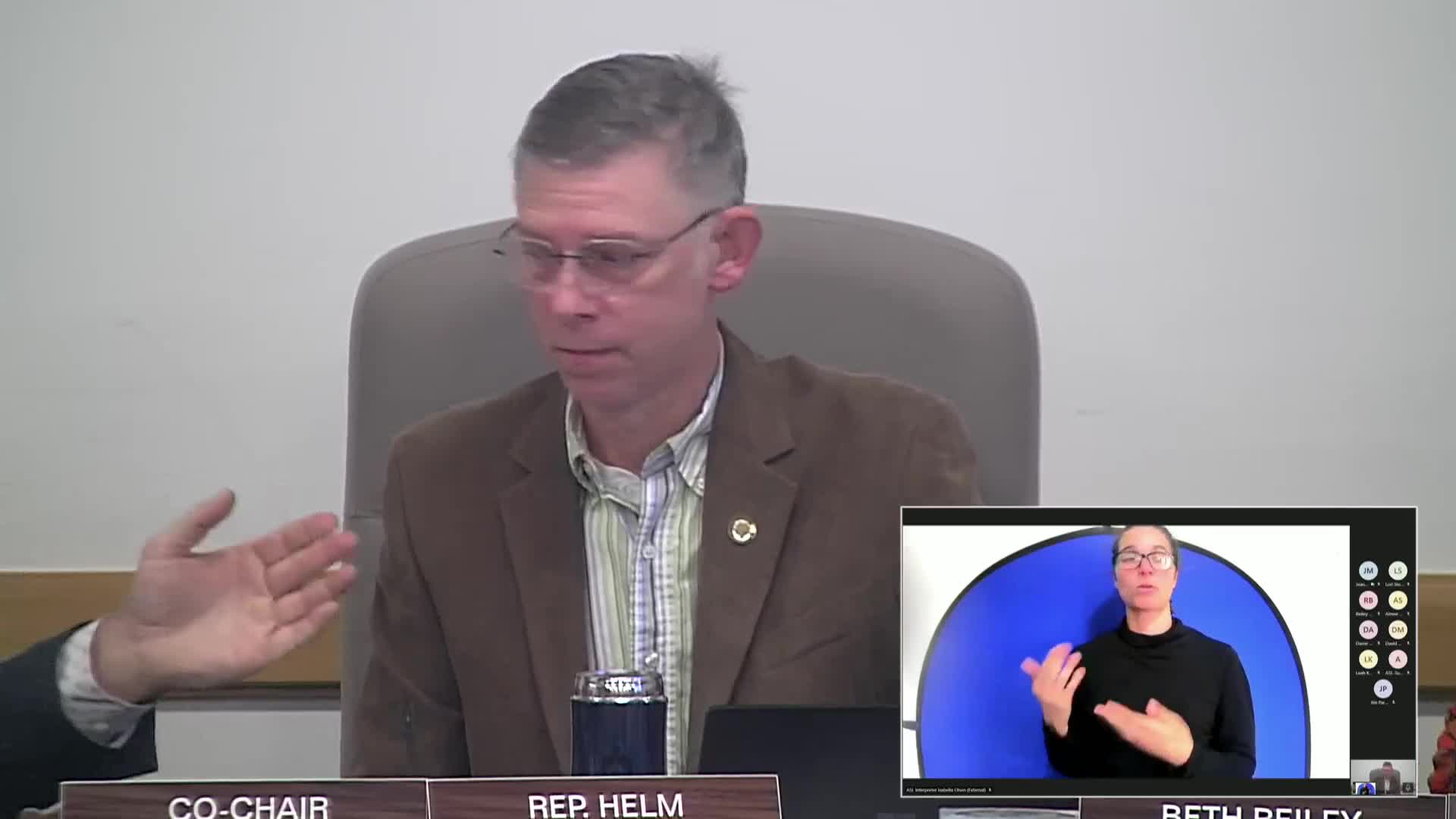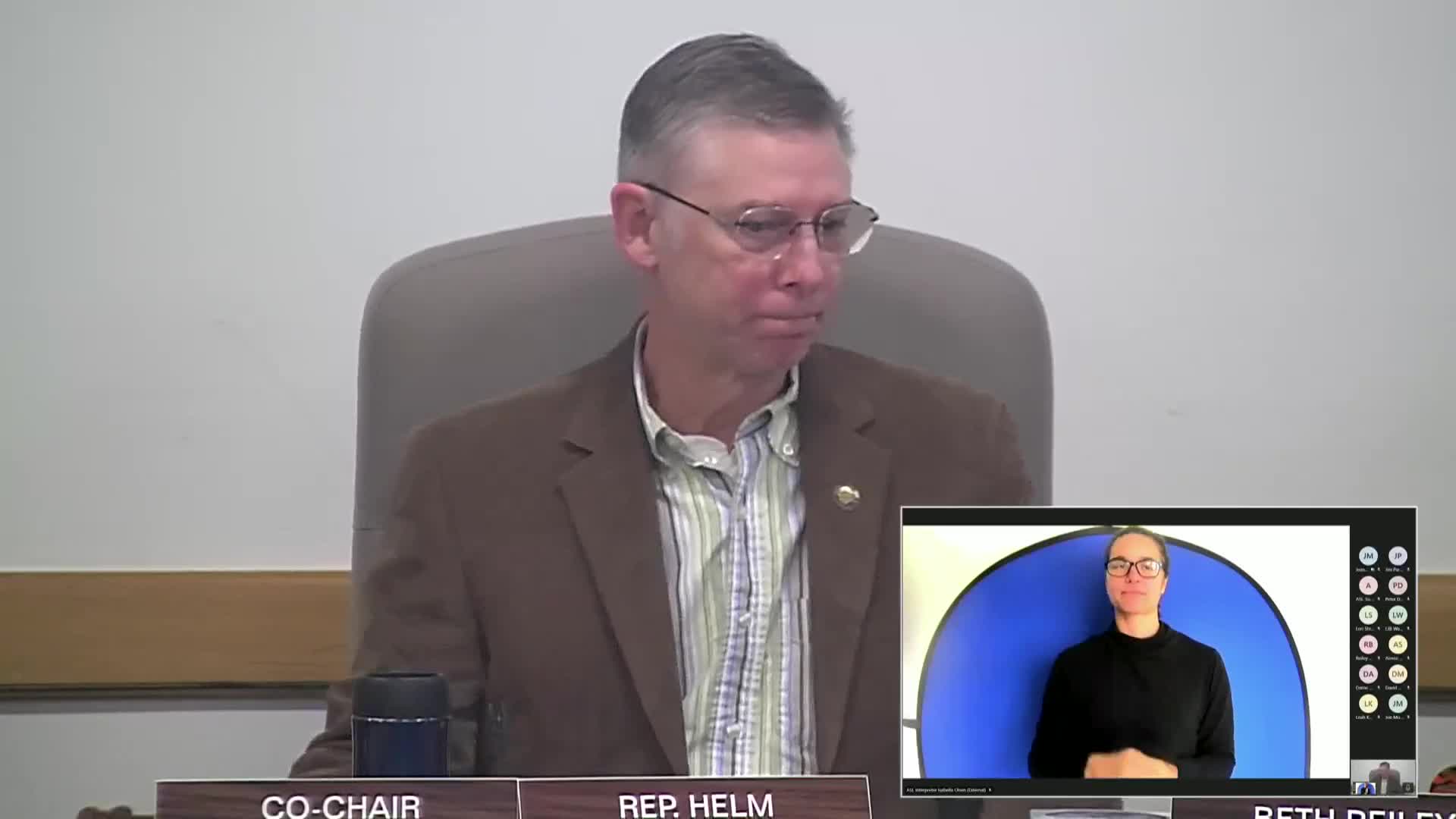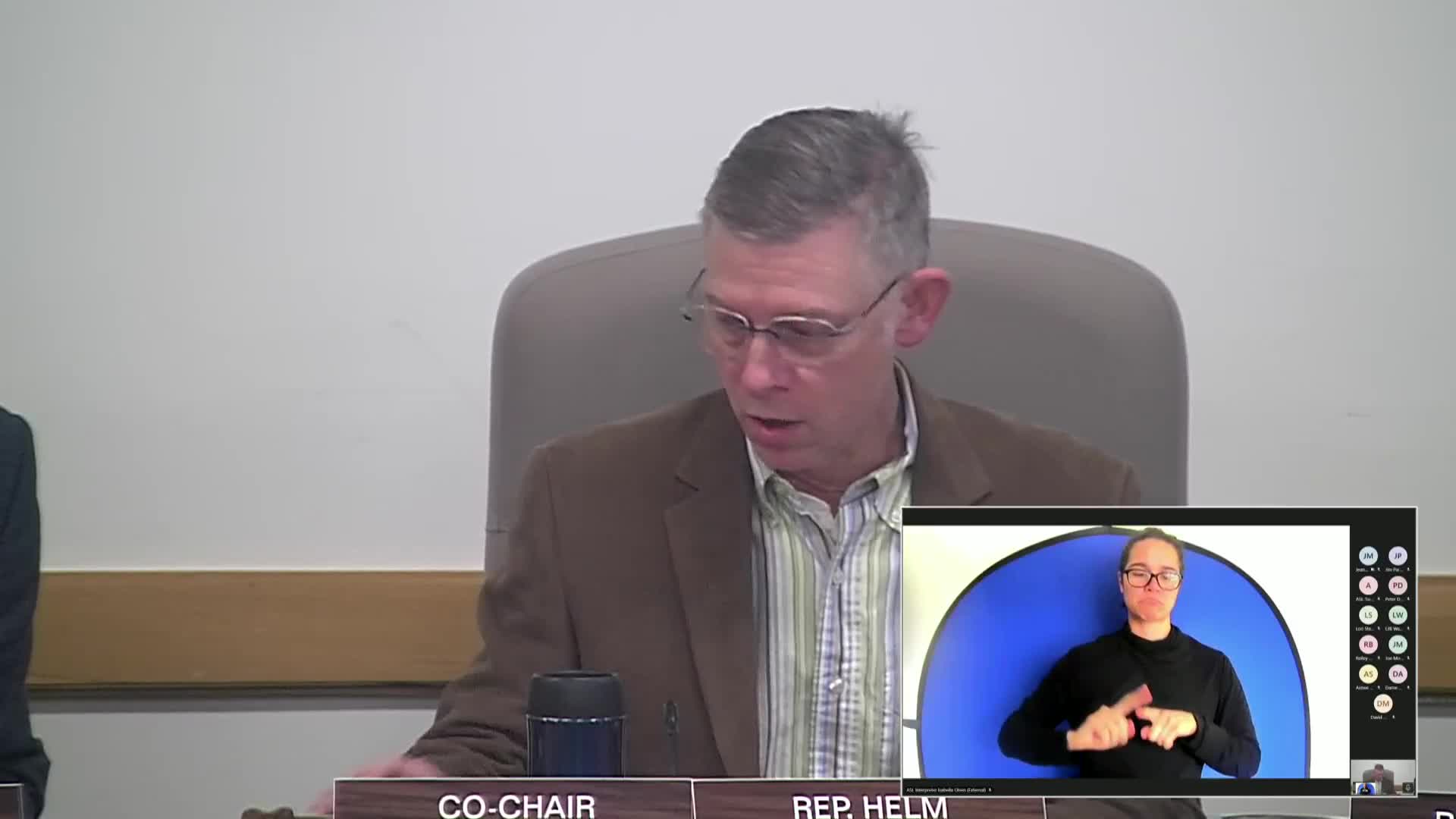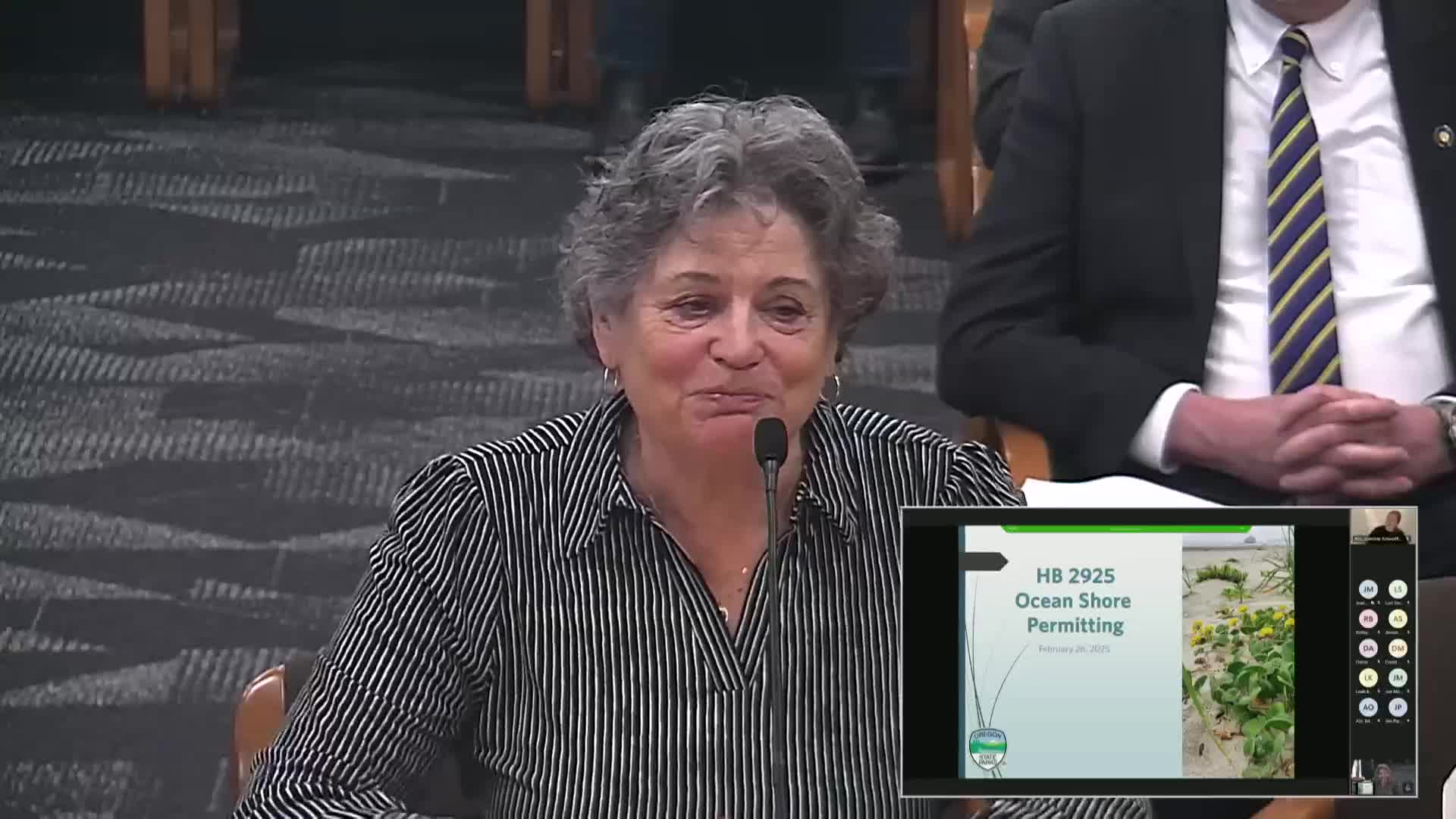Article not found
This article is no longer available. But don't worry—we've gathered other articles that discuss the same topic.

Heated testimony for and against HB 2965, bill proposing ban on marine net pens in Oregon

Committee hears progress report on Oregon Water Data Portal pilot; staff say long-term governance and funding needed

Committee approves amendment to HB 2256 limiting damages for conservation-focused land purchases

